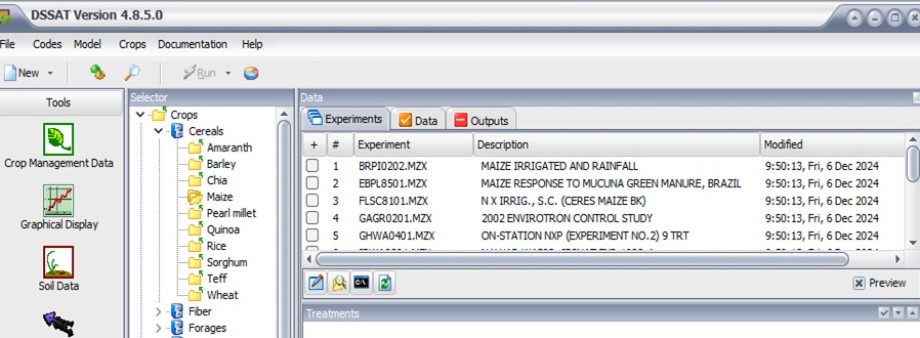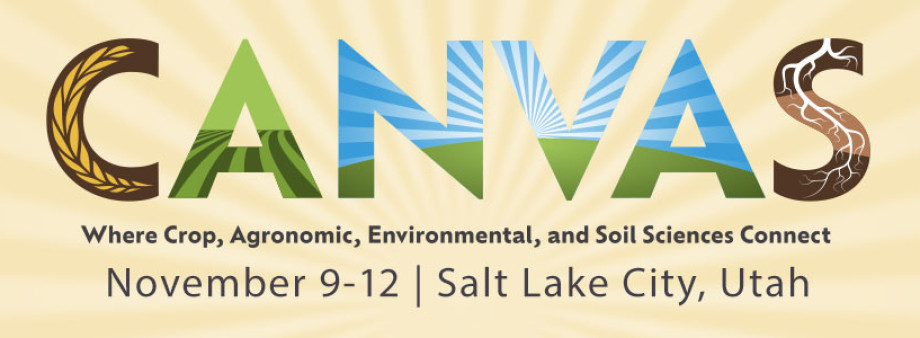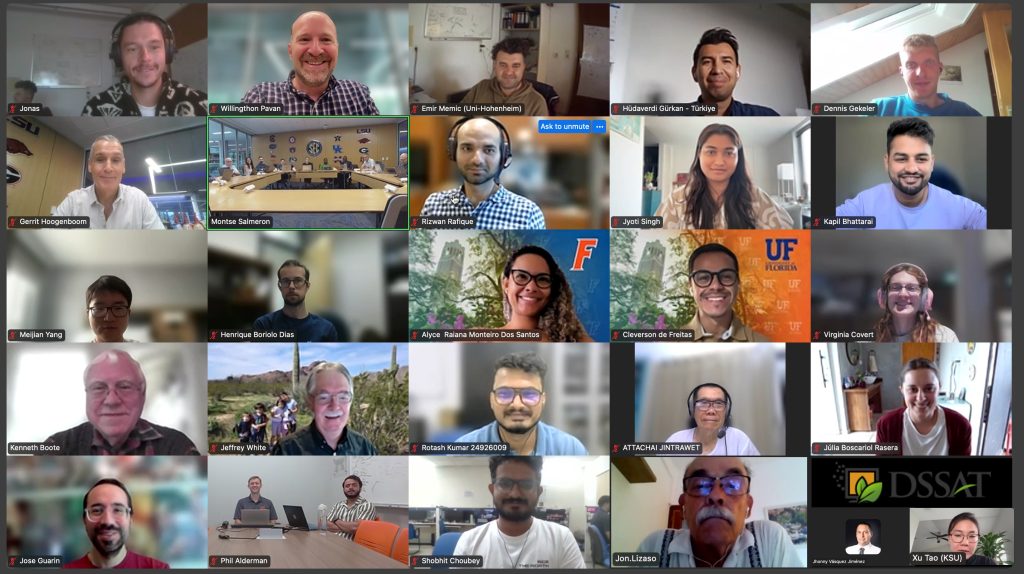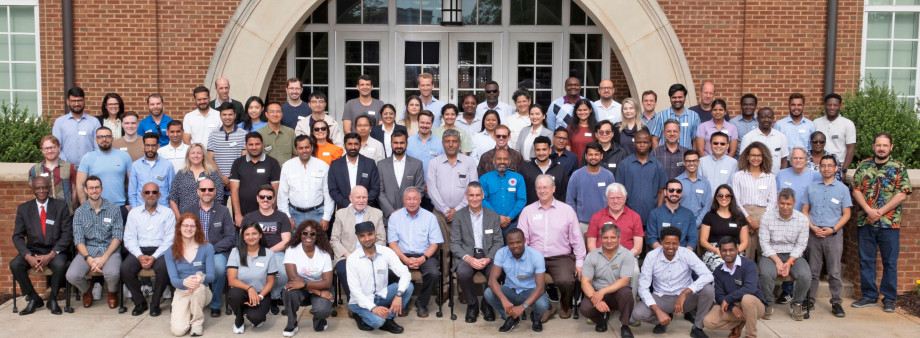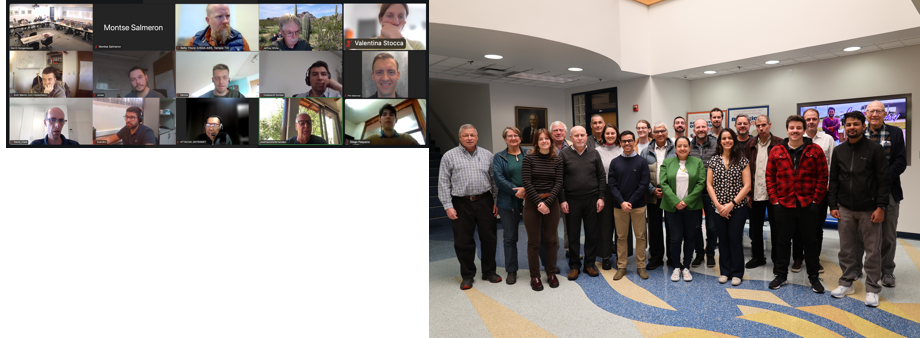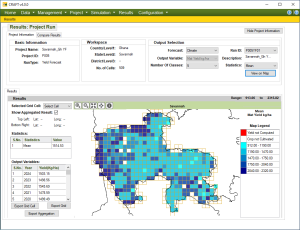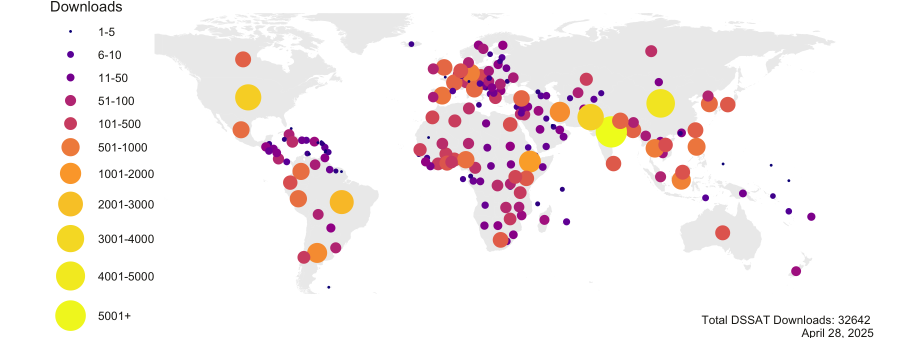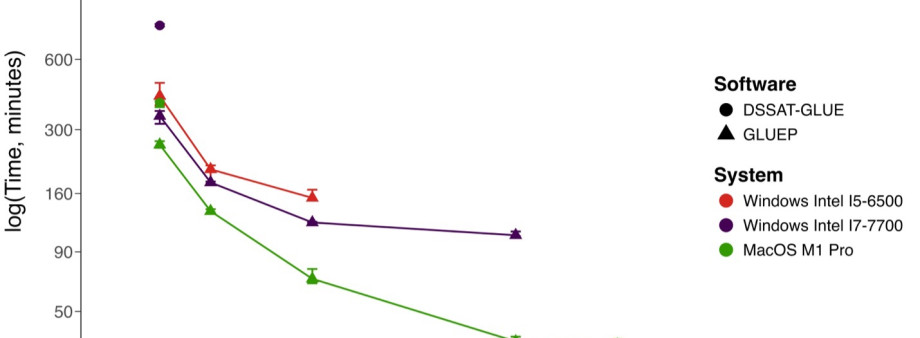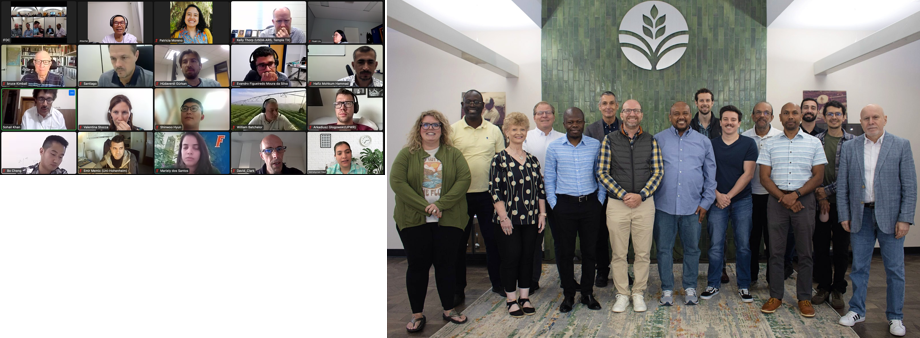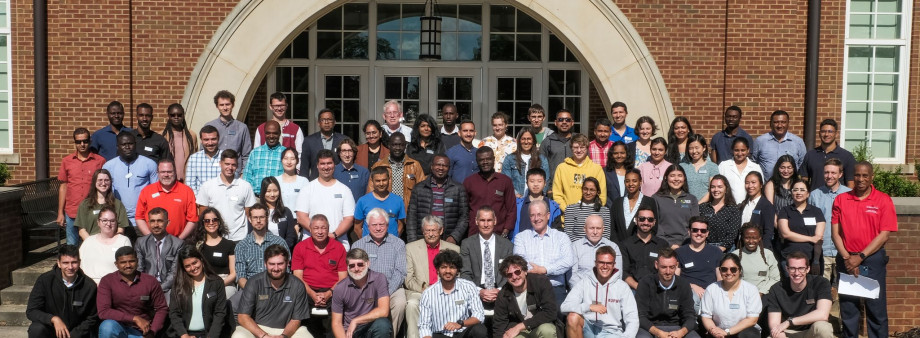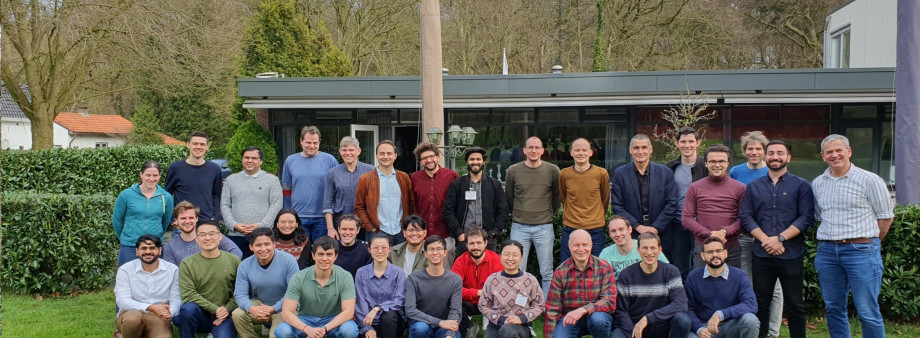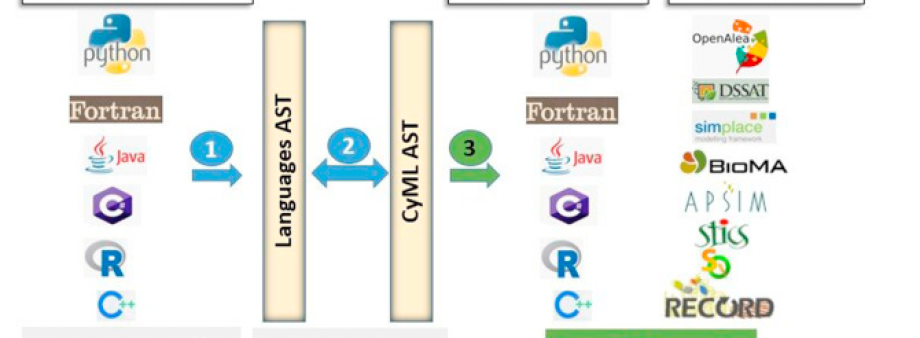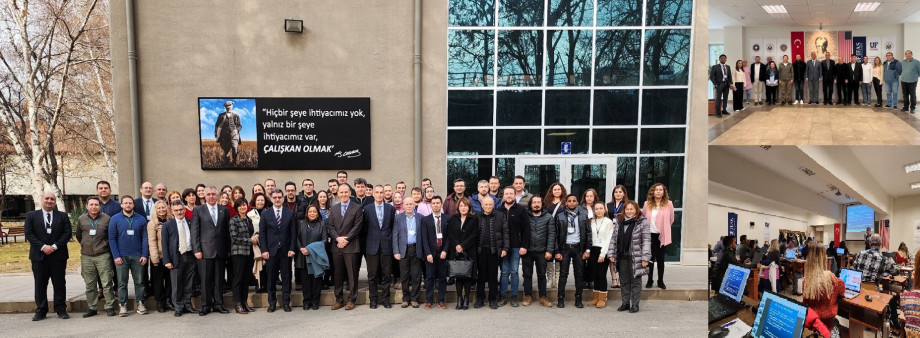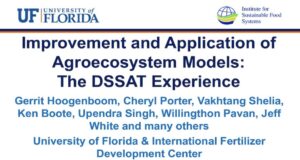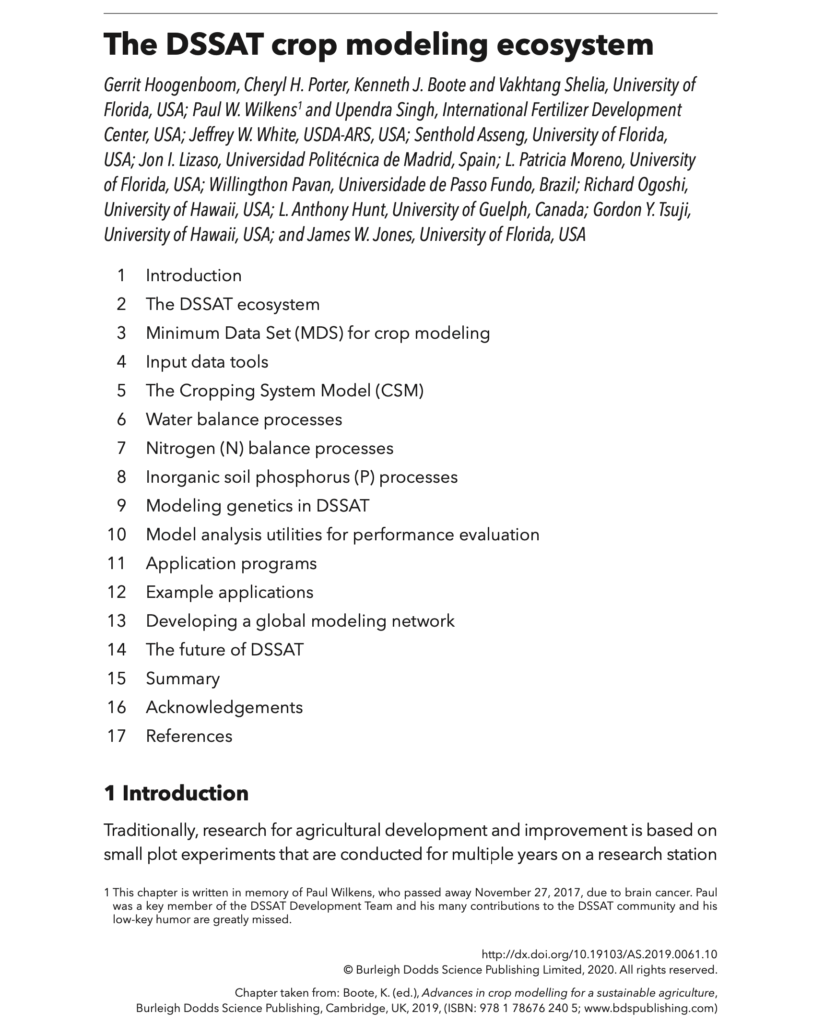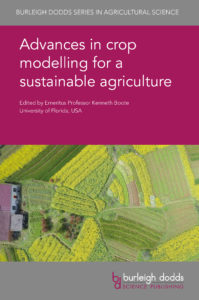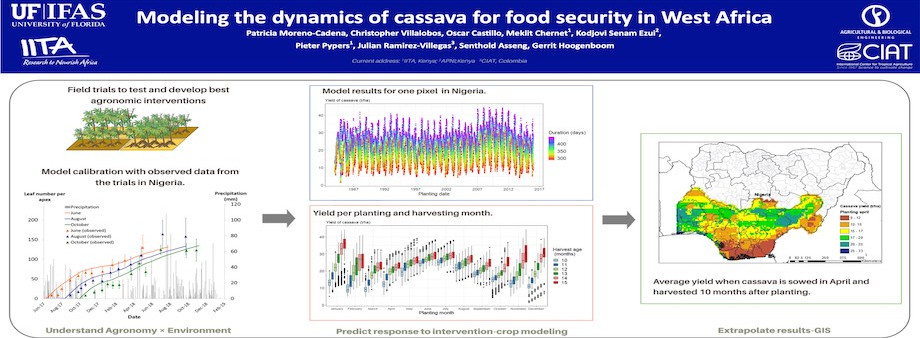22nd Annual Open Forum on Crop Modeling and Decision Support Systems
The DSSAT Foundation will be sponsoring the 22nd Annual Open Forum on Crop Modeling and Decision Support Systems during this year’s ASA-CSSA 2018 International Annual Meeting. The forum is scheduled for Monday night, November 5, 2018, from 7:30 – 9:00 pm in Room 332 of the Baltimore Convention Center in Baltimore, Maryland. The forum is an […]
DSSAT 2018 @ Jamaica
Over the period July 16-27, 2018, the Department of Physics, University of the West Indies, in concert with the Department of Life Sciences (Mona and St. Augustine) facilitated a Training Workshop on Crop Simulation Modelling, Climate change and Livestock Impact Assessment. The workshop consistent of two one week sections, one basic and one advanced. The […]
9th DSSAT Development Sprint at the University of Arizona
The 9th DSSAT Development Sprint was held from July 09-13, 2018, at the Maricopa Agricultural Research Center (MAC) of the University of Arizona in collaboration with the Arid Land Agricultural Research Center (ALARC) of USDA-ARS. The workshop was attended by scientists from Brazil, Jordan, Mexico, South Korea, and the USA. One of the main goals […]
DSSAT & MWCropDSS 2018 International Training Program
The DSSAT and MWCropDSS 2018 International Training Program entitled “Efficient and precision agricultural resource utilization under changes with simulation models and GIS” will be held from August 27 through September 1, 2018 at Chiang Mai University in Chiang Mai, Thailand. This workshop is jointly presented by Chiang Mai University, The University of Florida, the DSSAT […]
DSSAT 2018 International Training Program at the University of Georgia
Agricultural scientists from across the world met on the University of Georgia Griffin Campus from May 14-19, 2018 to learn about the latest Version 4.7.2 of the DSSAT computer software program. The Decision Support System for Agrotechnology Transfer (DSSAT) helps researchers predict the growth and yield of various crops in response to the genetics, weather […]
CRAFT: A New Spatial Yield Forecasting Tool
The CCAFS Regional Agricultural Forecasting Toolbox (CRAFT) is a software platform designed for yield forecasting at spatial resolutions of either 5 or 30 arc-minutes using an ensemble modeling approach. Currently the DSSAT, APSIM, and SARRA-H crop simulation models have been implemented for nine important food and feed crops using the AgMIP IT tools. CRAFT was […]
New Perennial Forage Model in DSSAT 4.7
We are pleased to announce the release of the CSM-CROPGRO-Perennial-Forage model in DSSAT Version 4.7, complete with species adaptations and data files for three perennial forages: Brachiaria brizantha Stapf cv. Marandu, ‘Tifton 85’ bermudagrass (Cynodon spp.), and alfalfa (Medicago sativa L.) cv. Aragón. The CROPGRO Perennial Forage Model (CROPGRO-PFM) was developed from the annual crop […]

